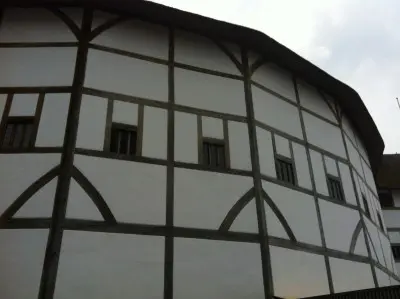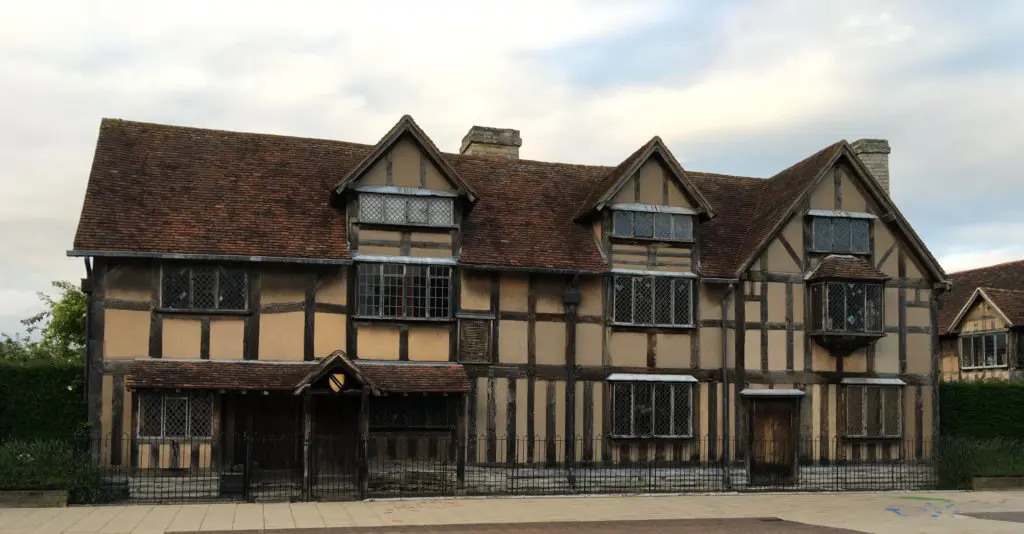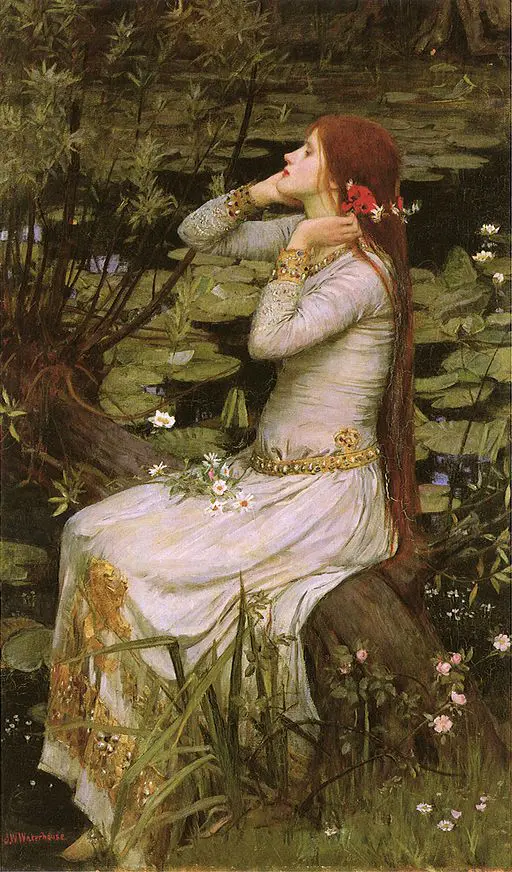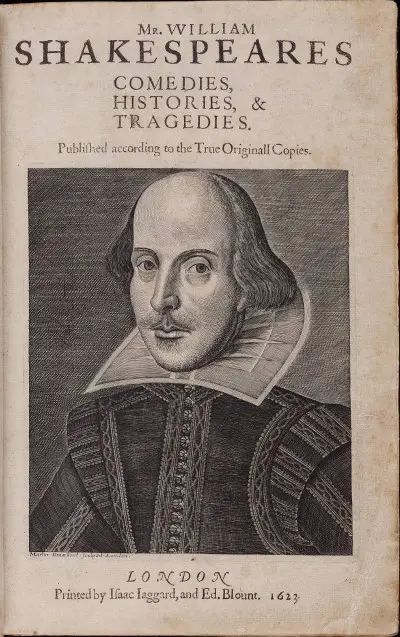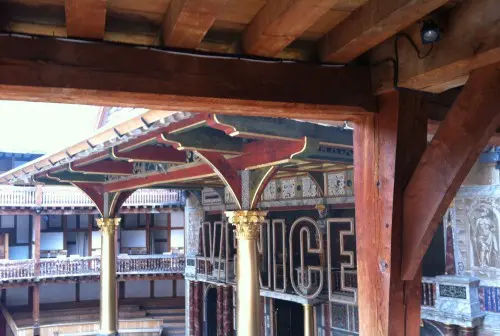After finishing the quiz, you will be awarded a ‘Certificate of Achievement,’ which you can download or print.
Quiz Summary
0 of 21 Questions completed
Questions:
Information
You have already completed the quiz before. Hence you can not start it again.
Quiz is loading…
You must sign in or sign up to start the quiz.
You must first complete the following:
Results
Results
0 of 21 Questions answered correctly
Your time:
Time has elapsed
You have reached 0 of 0 point(s), (0)
Earned Point(s): 0 of 0, (0)
0 Essay(s) Pending (Possible Point(s): 0)
| Average score |
|
| Your score |
|
Categories
- shakespeare 0%
-
-
Congratulations on reaching the 80% (or higher) score! Please download or print your “Certificate of Achievement”.
- 1
- 2
- 3
- 4
- 5
- 6
- 7
- 8
- 9
- 10
- 11
- 12
- 13
- 14
- 15
- 16
- 17
- 18
- 19
- 20
- 21
- Current
- Review
- Answered
- Correct
- Incorrect
-
Question 1 of 21
1. Question
1 point(s)William Shakespeare lived mainly in the
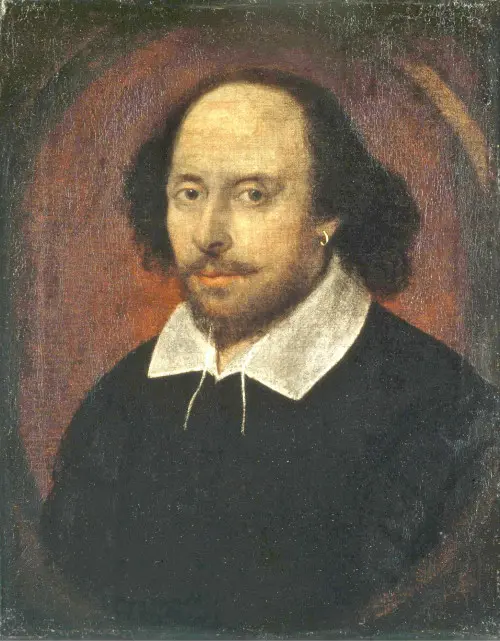 CorrectIncorrect
CorrectIncorrect -
Question 2 of 21
2. Question
1 point(s)William Shakespeare’s playing company, the Lord Chamberlain’s Men, had a theater built in London. Many of his plays were performed there. In 1613 it was destroyed by fire but a modern reconstruction was rebuilt. It opened in 1997, 230 meters from the site of the original theatre.
The name of this theater is
CorrectIncorrect -
Question 3 of 21
3. Question
1 point(s)William Shakespeare’s father, John Shakespeare, was a
CorrectIncorrect -
Question 4 of 21
4. Question
1 point(s)Shakespeare is also known as
CorrectIncorrect -
Question 5 of 21
5. Question
1 point(s)Speaking the name Macbeth inside a theatre is believed to cause disaster according to theatrical superstition. Actors avoid saying its name when in the theatre and use a euphemism instead.
Which alternative phrase do actors use to refer to the play Macbeth?
CorrectIncorrect -
Question 6 of 21
6. Question
1 point(s)I Early London theaters like The Globe and The Theatre had no roof.
II A large portion of the audience would stand in the yard, directly in front of the stage.CorrectIncorrect -
Question 7 of 21
7. Question
1 point(s)Although William Shakespeare’s reputation as a writer is based primarily on his plays, he also wrote quite a number of sonnets.
How many did he write altogether?CorrectIncorrect -
Question 8 of 21
8. Question
1 point(s)William Shakespeare was born in
CorrectIncorrect -
Question 9 of 21
9. Question
3 point(s)Match these famous lines to the plays they belong to.
Sort elements
- Julius Caesar
- Hamlet
- The Merchant of Venice
-
Friends, Romans, countrymen, lend me your ears.
-
To be or not to be: that is the question
-
If you prick us, do we not bleed? / If you tickle us, do we not laugh? If you poison us, / do we not die? And if you wrong us, shall we not revenge?
Correct / 3 PointsIncorrect / 3 Points -
Question 10 of 21
10. Question
4 point(s)In the classical Greek tragedies of Aeschylus or Euripides the tragic hero would be brought down by a “tragic flaw”, an internal imperfection (‘hamartia‘). Often the classical tragic flaw would be a case of hubris, a belief that the protagonist is somehow above the fates, or in control of destiny.
Shakespeare’s four great tragedies also center on a character with a tragic flaw, which inevitably leads to his downfall.
Match the fatal flaw to the tragic hero.
Sort elements
- is indecisive.
- values appearances above reality.
- is ambitious.
- is of a jealous disposition.
-
Hamlet
-
King Lear
-
Macbeth
-
Othello
Correct / 4 PointsIncorrect / 4 Points -
Question 11 of 21
11. Question
1 point(s)OPHELIA
Oh, what a noble mind is here o’erthrown!—
The courtier’s, soldier’s, scholar’s, eye, tongue, sword,
Th’ expectancy and rose of the fair state,
The glass of fashion and the mould of form,
Th’ observed of all observers, quite, quite down!
And I, of ladies most deject and wretched,
That sucked the honey of his music vows,
Now see that noble and most sovereign reason
Like sweet bells jangled, out of tune and harsh;
That unmatched form and feature of blown youth
Blasted with ecstasy. Oh, woe is me,
T’ have seen what I have seen, see what I see!Hamlet, Act 3, Scene 1
John William Waterhouse’s painting Ophelia (1894)
In Shakespeare’s day female characters were played by
CorrectIncorrect -
Question 12 of 21
12. Question
1 point(s)The first names of William Shakespeare’s parents were
CorrectIncorrect -
Question 13 of 21
13. Question
1 point(s)The Porter scene in Macbeth is an example of a comic episode usually set after after a succession of intensely tragic dramatic moments. It is used to provide a temporary reprieve from tension, or to intensify the dramatic action.
What is the correct dramatic term for this comic interlude?
CorrectIncorrect -
Question 14 of 21
14. Question
1 point(s)With whom did Shakespeare marry?
CorrectIncorrect -
Question 15 of 21
15. Question
4 point(s)Which Shakespearean tragedies are generally considered to be his Four Great Tragedies?
Correct / 4 PointsIncorrect / 4 Points -
Question 16 of 21
16. Question
1 point(s)The name of the first permanent theatre in London (built in 1574) was
CorrectIncorrect -
Question 17 of 21
17. Question
1 point(s)She should have died hereafter;
There would have been a time for such a word.
To-morrow, and to-morrow, and to-morrow,
Creeps in this petty pace from day to day,
To the last syllable of recorded time;
And all our yesterdays have lighted fools
The way to dusty death. Out, out, brief candle!
Life’s but a walking shadow, a poor player,
That struts and frets his hour upon the stage,
And then is heard no more. It is a tale
Told by an idiot, full of sound and fury,
Signifying nothing.
Macbeth Act V, scene 5In his plays Shakespeare frequently makes use of regular metrical (iambic pentameter) but unrhymed lines.
What is this verse called?CorrectIncorrect -
Question 18 of 21
18. Question
4 point(s)Match the Shakespearean play to its correct description.
Sort elements
- Richard III
- Othello
- The Taming of the Shrew
- Hamlet
-
English duke lies, cheats and murders to become king
-
Moorish general in the Venetian army wrongly suspects his wife of infidelity
-
rebellious young woman becomes obedient wife
-
young Danish prince should revenge his father, but procrastinates
Correct / 4 PointsIncorrect / 4 Points -
Question 19 of 21
19. Question
1 point(s)Shakespeare wrote 154 sonnets.
I A sonnet is a poem of sixteen lines.
II A sonnet is a poetic form which originated in Italy.CorrectIncorrect -
Question 20 of 21
20. Question
1 point(s)I From one side of a theatre like The Globe extended a thrust stage.
II A theatre company like The Lord Chamberlain’s Men let Londoners know there would be a performance in the theatre by ringing bells at regular intervals.CorrectIncorrect -
Question 21 of 21
21. Question
3 point(s)Match these famous lines to the plays they belong to.
Sort elements
- As You Like it
- Romeo and Juliet
- Macbeth
-
All the world ‘s a stage, / and all the men and women merely players. / They have their exits and their entrances; / And one man in his time plays many parts.
-
O Romeo, Romeo; wherefore art thou Romeo?
-
Life’s but a walking shadow, a poor player / That struts and frets his hour upon the stage / And then is heard no more. It is a tale / Told by an idiot, full of sound and fury, / Signifying nothing.
Correct / 3 PointsIncorrect / 3 Points
In his plays, he takes us to Venice, Denmark, and the Roman Empire. The most famous love story about the star-crossed lovers, Romeo and Juliet, was written by him. How much do you know about him? Test your knowledge and find out whether you are a Shakespeare blockhead or egghead.
William Shakespeare
He lived about four hundred years ago. He acted, wrote plays and sonnets, lived and worked in London for a while, and died a rich man in his hometown, Stratford-upon-Avon. Widely regarded as the greatest writer in the English language, he wrote histories, tragedies, comedies, and sonnets.
Questions
How much do you know about William Shakespeare’s life and work? What did theatres look like in his day and age? What are the names of his four great tragedies? In which century did he live?
